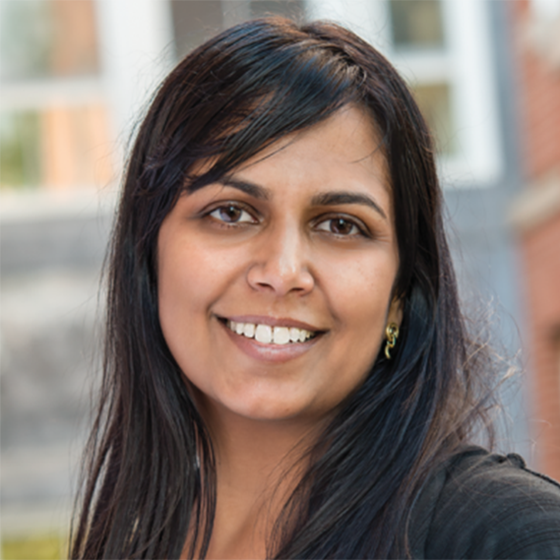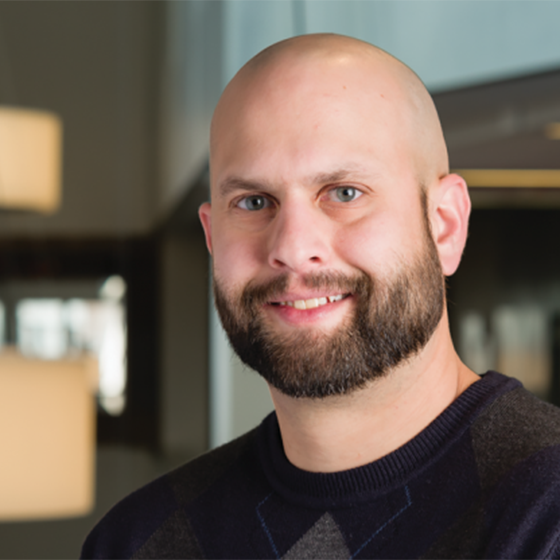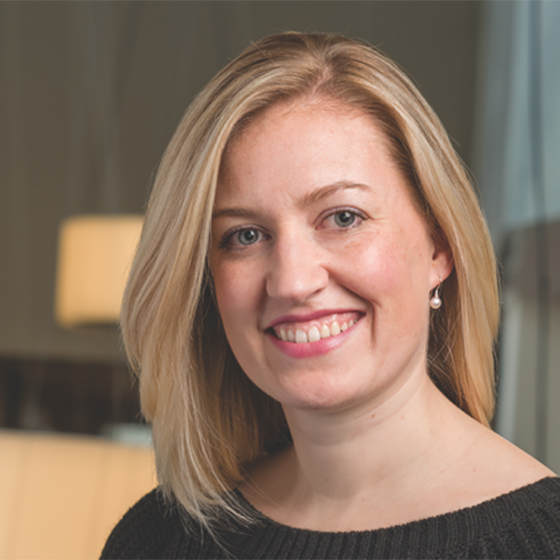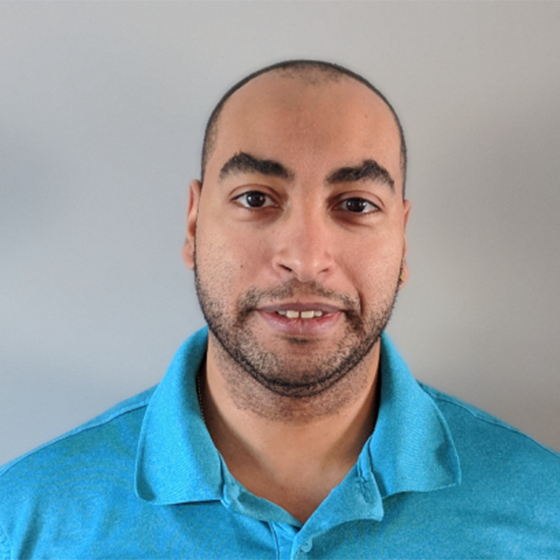Alumni at Leidos Biomedical

Leidos Biomedical employs several Hood College alumni. A few of them are profiled below.
Rachel Bagni Beyer
Rachel Bagni Beyer ’99
As a developmental scientist at Leidos, Rachel Beyer provides support to the National Cancer Institute Surgery Branch, a pioneering laboratory in the field of cancer immunotherapy (the use of the human immune system to treat cancer).
Her specific role is to ensure that patient cells that have been modified in the laboratory are safe for infusion into the patients. She coordinates and manages the testing required for safety by the FDA, and she investigates potential alternative ways to modify a patient cell in the lab, which may be more safe than what is currently used.
“I am part of a large team that conducts first-in-human clinical trials to investigate new therapeutic options in immunotherapy,” said Beyer. “We are always looking for ways to improve the process of engineering cells for immunotherapies as well as ensuring the safety and rigor of the processes since these are the patient’s cells that are modified and administered back to the patient.”
Beyer first joined NCI/SAIC Frederick (now Leidos Biomedical Research) as an intern 18 years ago thanks to a connection through her biochemistry instructor, who worked at NCI. She has now worked with Leidos for 18 years in several capacities.
Beyer is also an assistant professor at Hood. She uses her Leidos Biomedical experience as a teaching tool, and as a thesis adviser, she learns about a lot of different fields.
“I have heard from many students over the years that the real-life examples and broad first-hand research experiences that I can draw from for lecture material are exciting and appreciated.”
John-Paul Denson, M.S.’12
Trained in the liberal arts and equipped with a Hood master’s degree in biomedical science, John-Paul Denson is doing his part in cancer research at Leidos Biomedical Research, Inc.
Denson works with RAS genes, which cause about 30 percent of all human cancers. The overall goal of his program is to better understand and target cancers driven by mutations in the RAS pathway.
“We have all been affected by cancer, whether personally or somebody close to us, so once I got a chance to work towards helping fight this awful disease it hooked me,” Denson said. “It’s very motivating and rewarding to even contribute a small portion to the large and amazing cancer research community.”
When Denson first joined NCI/SAIC Frederick (now Leidos Biomedical Research) he knew he wanted to take advantage of the educational assistance program.
“Hood was convenient since I lived and worked in Frederick, but its biomedical science program also had a great reputation when I asked around to my work colleagues,” he said.
The decision has helped advance his career development he said. At the time of earning his master’s, Denson’s job involved large scale expression of E. coli in bioreactors. Only a few months after taking Craig Laufer’s, Ph.D., protein purification course, he was transferred to the purification group.
“The skills and principles that I learned from Dr. Laufer helped make it a much easier transition when training and learning purification techniques here at the Frederick National Lab,” Denson said.
Lauren Procter, ’08, M.S.’17
Now in her ninth year at the company, Lauren Procter first found her way to Leidos Biomedical Research, Inc. during her senior year when she completed an independent study with professor of biology Craig Laufer, Ph.D.
“I gained hands-on research experience while supporting Dr. Laufer’s research on pectinolytic enzymes for biofuel production from sugar beet pulp,” she said. “Nearing graduation, I spoke to Dr. Laufer about career paths and he was able to connect me with Dr. Dominic Esposito, a scientist at Leidos Biomedical Research (formerly, SAIC-Frederick).”
While there were no positions open at the time, Esposito would eventually hire her. A molecular cloning position opened in the Protein Expression Lab in Esposito’s lab half a year after her graduation.
“I was so relieved to be employed, and excited to start my career in a lab where I could build on the skills that I gained from working with Dr. Laufer,” she said.
After five years in the field, Procter returned to Hood to pursue a master’s in biomedical science, and graduated in January 2017.
“Between my education at Hood, and the hands-on learning at work, I feel that my knowledge of the field has increased dramatically in a relatively short period of time,” she said. “I often think about how grateful I am to have had wonderful mentors at Hood and incredible scientists leading me at Leidos Biomed.”
Currently, Procter’s role is to support principal investigators from the NCI’s Center for Cancer Research by producing proteins that they need for their research. They do this by expressing the protein of interest in a host, such as E. coli, mammalian cells, or insect cells, and isolating the protein from the cells by a series of purification steps.
Antonio Punzo ’16
Antonio Punzo is using his bachelor’s degree in computer science as a program analyst at Leidos Biomedical.
He is responsible for developing, maintaining and enhancing software that is used by several government research laboratories. Many of his projects require processing and tracking subjects, samples and studies that involve massive amounts of data, which must be processed and retrieved in a short amount of time.
“As a developer, my main goal is to develop software that will deliver fast and accurate data to the user, while providing flexible and easy-to-use tools to enhance their work performance,” he said.
Punzo said the communication and technical skills he learned through his computer science degree, including advanced topics such as recursive functions and object-oriented programming, were instrumental in making him stand out to obtain his current position.
“Because of the nature of my work and the diversity of software that I maintain, enhance and develop, I must use several programming languages such as Java, Python, C++ and Bash Script,” he said. “My classes at Hood introduced me to many of these languages and taught me the skills necessary to learn new languages quickly.”
Hood Alumni at Leidos Biomedical

John-Paul Denson

Lauren Procter

Antonio Punzo
Are you ready to say Hello?
Choose a Pathway
Information will vary based on program level. Select a path to find the information you're looking for!
